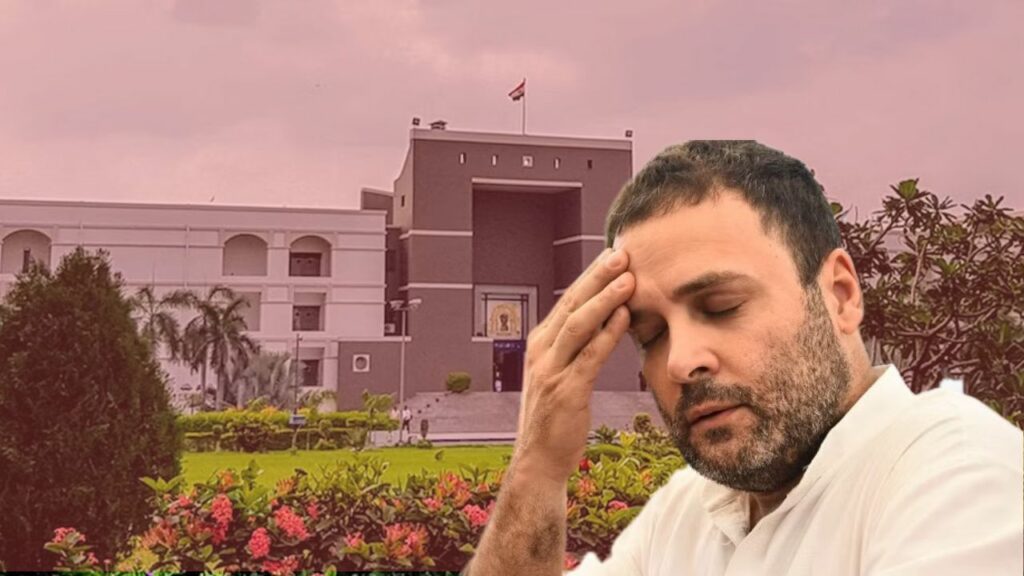Manas Dasgupta
NEW DELHI, July 7: Rahul Gandhi will remain disqualified as a Lok Sabha member after the Gujarat High Court on Friday rejected his request to put on hold his conviction in the Modi surname remark case of 2019.
Delivering his judgement which he had reserved since May 2 when he completed the hearing the case, Justice Helmand Prachchhak of the High Court said the “conviction is just, proper and legal.”
The Congress leader will now approach the Supreme Court. Since his disqualification stands, he is not likely to make it back into parliament in the monsoon session beginning July 20. If the Supreme Court also rejects his request, Rahul Gandhi cannot contest next year’s election.
Rahul Gandhi’s disqualification could have been reversed if the High Court had granted a stay on the conviction by the magistrate’s court or decided the appeal against the sessions court’s order in his favour. In a 2018 decision in ‘Lok Prahari v Union of India’, the Supreme Court had clarified that the disqualification “will not operate from the date of the stay of conviction by the appellate court.” He, however, will not go to jail as his two-year sentence had been put on hold by a court previously.
The Gujarat High Court cited another defamation case filed against Rahul Gandhi by the grandson of Vinayak “Veer” Savarkar. “It is needed to have purity in politics… A complaint has been filed against (Rahul Gandhi) by the grandson of Veer Savarkar in Pune Court after Gandhi used terms against Veer Savarkar at Cambridge,” the High Court said.
“Refusal to stay conviction would not in any way result in injustice to the applicant. There are no reasonable grounds to stay conviction. The conviction is just, proper and legal.” The High Court said there were “as many as 10 cases pending” against Rahul Gandhi and he was “seeking a stay on absolutely non-existent grounds.” A “stay on conviction is not a rule,” said the judge.
Rahul Gandhi, 53, was handed a rare two-year sentence in a defamation case in Gujarat on March 23 for his speech during the 2019 Lok Sabha campaign in Kolar in Karnataka. Gujarat BJP MLA and former minister Purnesh Modi had filed the case in the Surat court over Rahul Gandhi saying: “How come all thieves have the common surname Modi?” The Congress leader, who was the Lok Sabha MP from Wayanad in Kerala, was disqualified soon after.
Friday’s High Court decision is a huge blow to the Congress as it plans strategy for a series of upcoming polls, including the 2024 national election. In May, the Gujarat High Court had denied any reprieve to Rahul Gandhi, saying it would announce its final decision after the court’s summer vacation, which ended three weeks back.
The incident dates back to April 13, 2019. Rahul was campaigning for the Lok Sabha elections, and at an election rally in Kolar, Karnataka, he said in Hindi: “Why do all thieves, be it Nirav Modi, Lalit Modi, or Narendra Modi have the common surname ‘Modi’?” He was making a rhetorical reference to the fugitive jeweller Nirav Modi and the former cricket administrator Lalit Modi, both of whom face allegations of financial fraud.
The day after Rahul’s speech, Purnesh Modi filed a private complaint before the Chief Judicial Magistrate, Surat, accusing the Congress leader of having defamed everyone with the surname Modi.
On March 23, 2023, Magistrate H H Verma found Rahul guilty of criminal defamation under IPC Section 500, and gave him the maximum sentence allowed under that section, which is two years in jail. The court’s decision triggered Section 8(3) of The Representation of the People Act, 1951, which states: “A person convicted of any offence and sentenced to imprisonment for not less than two years shall be disqualified from the date of such conviction and shall continue to be disqualified for a further period of six years since his release.”
In consequence, on March 24, the Lok Sabha Secretariat issued a notification saying that Rahul stood disqualified from the House with effect from March 23, the date of his conviction.
On April 3 this year, Rahul moved the next higher court, the Surat sessions court, in appeal. He filed two applications, one for the suspension of the two-year sentence, and the other for the suspension of conviction. Rahul submitted to the sessions court that it seemed “reasonable to argue” that the maximum sentence awarded to him was to “attract the order of disqualification (as an MP).” Had the second application been allowed, his membership of Lok Sabha would have been restored. On April 13, Additional Sessions Judge R P Mogera said he would pronounce his order on April 20. On that day, the court rejected both applications.
Rahul then moved the Gujarat High Court in appeal. The court heard the petition against his conviction in April and May. Arguments were concluded on May 2, and the court said the verdict would be delivered after the summer vacation.
After the High Court’s order, the Congress party’s head of communications Jairam Ramesh said they would “pursue the matter further,” essentially meaning that Rahul has to move the Supreme Court against the High Court’s order.

